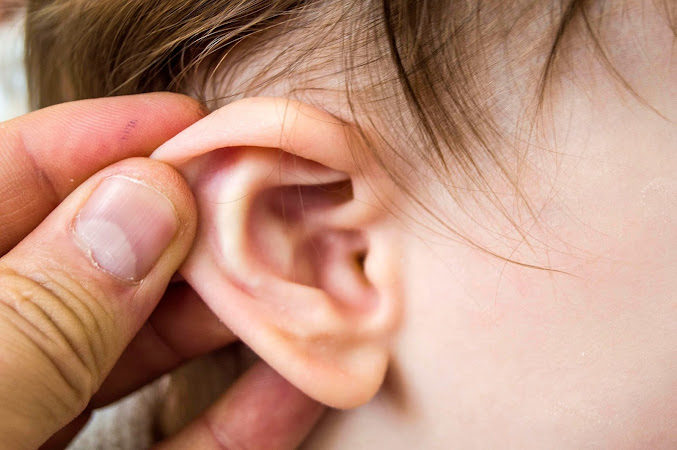Can Allergies Cause Ear Infection?
Can allergies cause ear infections? Nasal allergies, often known as allergic rhinitis, may times cause ear distress. Allergies cause inflammation in the sinuses and ear canals that might cause ear irritates and pain. Allergies lead the body to produce substances like histamine, which discomfort the nose, eyes, as well as throat. As a result of this inflammation, the sinuses may swell, and liquid can gather. This, in effect, may irritate the ear canals and produce discomfort. Here we will know that can allergies cause ear infections? What is its treatment?
Allergies, in certain, may induce ear discomfort by:
· As a result, an ear infection develops
· Letting fluid to store behind the eardrum
· The Eustachian tube is blocked, resulting in a rise in pressure
Allergies Cause Ear Infections in What Ways
Whenever your ear is allergic to anything, one of the methods it “protects” you from the allergen’s possible hazard is to create extra mucus to prevent allergen fragments from allowing the remaining part of your ear. However, whenever the allergen comes into touch with your nasal tissues, they may swell and become annoyed. Each of these reactions—inflammation, extra mucus, and persistent sinus outflow issues—can result in ear infections. Some personssuffer ongoing drainage problems, such asgrowth of pus and fluid in the middle ear, as extra mucus is difficult to leave the ear.
The membrane covering the Eustachian tube, such as your nasal tissues, may get swollen. Whenever this occurs, an increase in liquid and irritation in the middle ear may develop, causing in a severe ear infection. Now you get the answer to your question, “can allergies cause ear infections?” Below we will talk about its treatment.
Is It Promising For Allergies To Induce Ear Infections?
Allergies may also cause ear infections to occur. Folks who struggle from seasonal or year-round allergies are much more prone to get ear infections than those who do not. Allergies to the atmosphere may disrupt the Eustachian tube that extends from the middle ear to the esophagus. The Eustachian tube is answerable for balancing pressure among the inner and outer ear.
An allergy may induce inflammation around the Eustachian tube, preventing liquid from leaking out of the middle ear. When this fluid collects behind the eardrum, germs and viruses are more likely to develop in the liquid. Certain viruses and bacteria may grow a middle earache. The following symptoms of a middle ear infection might develop:
· Swelling
· Redeardrum
· Fever
· Ear leak is a condition in which fluid drains from the ear
· The sensation of heaviness in the middle ear
· Earache in one or both ears
· Hearing problem
· Sore throat
Treatment
When a person suffers from ear discomfort due to an allergy, curing the allergy may help relieve the pain. The first stage in curing ear discomfort caused by allergies is defining which allergens are triggering the problem. An allergist and immunologist could assist people in recognizing their triggers.
When one person understands which allergens are bothering them, they may attempt to prevent them. If a person is sensitive to dust mites, for instance, keeping living areas clean and aired may help minimize contact with this allergen. When people are allergic to dust, they might need to restrict their time outside when the dust mite level is high. Among the various therapeutic options are:
1. Anti-Allergy Injections
Allergy injections, sometimes known as allergen immunotherapy, may offer long-term relief. These injections, as per the American Academy of Allergy, Asthma, as well as Immunology, are apractical and established way of curing seasonal allergies. Allergy injections contain just a trace of the allergen to which the patient is allergic. This would only be sufficient to stimulate the immune system, however not adequate to produce a severe allergic response. The body gets desensitized to the allergens in this manner.
2. Allergy Tablets
Allergy pills, which function likewise to allergy injections, are an option. Individuals get a daily pill that contains a trace of the allergen.
3. Other Pharmaceuticals
Certain medicines might be prescribed by a doctor to cure allergies. These might include:
· Antihistamine nasal sprays
· Corticosteroid nasal sprays
· Antihistamine nasal sprays
· Decongestant tablets
· Antihistaminepills
Using any allergy medicine just as prescribed by your doctor may help alleviate unpleasant symptoms such as ear discomfort. Situation al allergies, like acute fever, might require the use of allergy medicines before making contact with the allergens. It’s because allergy medicine inhibits the production of molecules that trigger allergic responses, like histamine.
Taking Care of an Ear Infection
A doctor might give antibiotics to cure an ear infection caused by an allergy. Antihistamines, decongestants, and pain relievers might alsouse to lessen symptoms.
Diagnosis
Allergists and immunologists are physicians who are expertise in allergy diagnosis and treatment. To determine which allergies a patient might have, they would conduct complete medical records and manage allergy testing. A skin needle test is sometimes used by allergists. This entails pinching the skin with a very little quantity of an allergen. After fifteen min, the skin would either stay unchanged or exhibit suggestions of a bit of response. When the individual is allergic to the controlled allergens, the skin may swell and itch somewhat.
Whenever this treatment is not suitable owing to the growth of skin disease and certain medicines, the doctor might instead conduct a blood test.
When Should You Visit A Doctor?
It recommends visiting a doctor if you are suffering ear discomfort. They might be ready to determine when the ear discomfort is caused by an allergy and an infection. They would also be prepared to remove other possible reasons. When the doctor suspects, which allergies are to blame for the ear discomfort, they may send the patient to an allergist and immunologist for a more inclusivetreatment. When an ear infection’s signs do not resolve within 48–72 hours, the patient should visit a doctor.
Summary
Ear discomfort may cause by nasal allergies, often known as allergic rhinitis. Allergens cause histamine as well as other materials to be released in the body. These substances induce nasal and sinus inflammation, which may damage the ear and generate ear discomfort. Ear infections may cause by swelling and fluid growth in certain instances. A person may visit their physician and an allergist to get treatment and check out whether their allergies are causing their ear discomfort. When a person is aware of which allergens are likely to cause a response, they might take measures to prevent or limit their contact with them.
Medications such as antihistamines, decongestants, as well as allergy injections may help alleviate symptoms. Whatever ear discomfort caused by allergies must relieve by treating them. Antibiotics might require when a person grows an earache.




